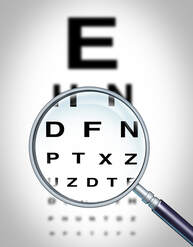Coronavirus transmission and the eyesAlthough we are still learning about the coronavirus, we know that one way it is transmitted is through contact with respiratory droplets from a sneeze, cough, or possibly even talking. But droplets may also enter through the eyes. For example, the droplets from a sneeze can make their way into your eyes. It is also possible to contract the virus through cross-contamination. For example, if you touch a surface that someone with the virus touched and rubbed your eyes, you can potentially become infected. Having an eye exam during the pandemicYou might wonder if it’s safe to have an eye exam during the coronavirus pandemic. It’s best to call your ophthalmologist to determine if you should be seen in person. A virtual appointment, which may include a video chat, may be an option in some cases. Keep in mind, the situation is different in different states and even certain counties within each state. Local restrictions and recommendations continue to change. So, call your eye doctor for the most up to date recommendation. It’s critical not to ignore serious eye issues. You should not hesitate to contact an ophthalmologist for urgent and emergency appointments. If you experience any of the following, contact an eye doctor as soon as possible:
Whether you go to see an ophthalmologist for a routine appointment or an urgent situation, things may be a little bit different at your visit. Although it may vary, you might see the following changes:
It is also important to let your doctor know before coming to the appointment if you have a fever, cough, or have had any exposure to someone with coronavirus. If it is not an emergency, your eye doctor will likely ask you to reschedule if you experience any of the above. Keeping your eyes healthy during the coronavirus pandemicThere are several things you can do to keep your eyes and vision healthy during the pandemic, including:
Washing your hands often: It may seem simple, but frequent handwashing is one of the best ways to prevent getting sick. If you wear contacts, be sure to pay extra attention to handling your lenses and handwashing before touching your eyes. Avoiding rubbing your eyes: Since it is possible to get the virus after touching a contaminated surface and touching your eyes, avoiding rubbing your eyes can help. Consider wearing eye goggles in high-risk situations: If you work somewhere that puts you at an increased risk of getting the virus, such as a first responder or medical worker, consider adding goggles to your PPE (personal protective equipment). Continue to take eye drops as prescribed by your doctor: Don’t skip a trip to the pharmacy and stop taking prescription eye drops without first talking to your eye doctor. Don’t delay care for a serious eye problem: Avoiding eye care when it’s urgent can make the situation worse. Your ophthalmologist will take the necessary precautions to reduce the risks of virus transmission. Although it is a challenging time for everyone, taking good care of yourself is important to stay well. If you have any questions or to discuss whether an appointment with one of our eye doctors would be appropriate at this time, please call our office at 508-746-8600. Comments are closed.
|
EYE HEALTH BLOGCategories
All
Archives
July 2024
|
|
Kadrmas Eye Care New England
55 Commerce Way, Plymouth, MA 02360
14 Tobey Road, Wareham, MA 02571 133 Falmouth Road (Rt 28), Mashpee, MA 02649 |
Phone Number:
1-508-746-8600 Hours: Monday through Friday — 8 AM – 4:30 PM |


 RSS Feed
RSS Feed
